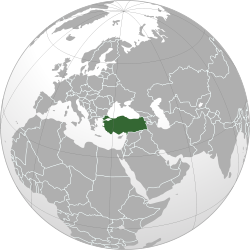The U.S. must rein in Turkey before a conflagration further complicates America's options toward the Syrian civil war
Wednesday, January 09, 2013
No comments
Syria promises to be a major headache for the Obama administration during its second term. But if Washington works with Ankara effectively, Turkey can help the U.S. achieve an endgame in Damascus. To facilitate this coordination, Washington should assign a full-time, high-level White House envoy to work with Ankara on Syria. Escalating clashes along the Syrian-Turkish border have raised fears that Turkey, a NATO ally, might prematurely get pulled into the Syria conflict. Policymakers and the Turkish public held their breath following the downing of a Turkish fighter jet in June 2012, and escalating artillery duels have raised fears of imminent Turkish intervention. To avoid this risky scenario, Washington must be able to anticipate Ankara's next steps, and find ways to pull Ankara back when necessary. This is where a White House envoy could play a crucial role. The Turks, reveling in their post-imperial glory, would greatly appreciate a specially-designated White House representative who would talk to them, and they would listen to this envoy, too. Although Turkey and the United States both want Assad to go, the two countries are in different places. For Washington, Syria is a smoldering conflict, and Americans abhor the Assad regime. But Washington fears the unknown after Assad, and is reluctant to get dragged into a war in another Muslim country. So, the United States has been taking baby steps in Syria and avoiding military engagement. The American strategy is designed in anticipation of a soft-landing in Syria. The hope is that the opposition will coalesce and take over the country gradually, deposing Assad and avoiding the anarchy that would ensue if the Assad regime were to evaporate overnight.


































